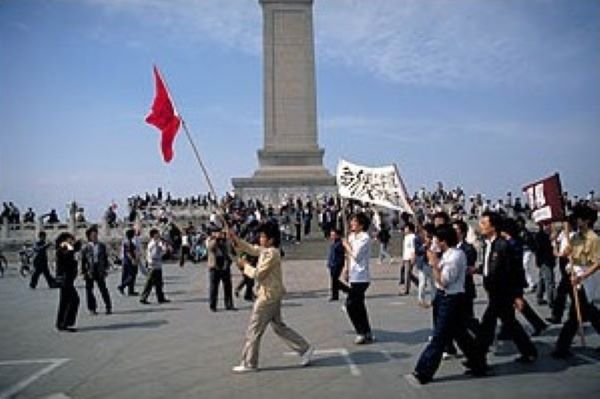IPWatchdog Celebrates its 25th Anniversary, Gene Quinn is Awarded for Lifetime Achievement and Former USPTO Leadership Discusses Ways to Improve The Agency
Gene Quinn was also presented with a Lifetime Achievement Award by his alma mater, the University of New Hampshire (UNH), Franklin Pierce Law School, for his service to and work with the IP community. In a surprise ceremony, Gene Quinn was also presented with a Lifetime Achievement Award by his alma mater, the University of New Hampshire (UNH), Franklin Pierce Law School, for his service to and work with the IP community.
UNH Dean and Professor of Law Megan Carpenter presented the award, explaining that, since Quinn created IPWatchdog two years after graduating with his LLM, it has over the years evolved into much more than just a media company–it is now also an IP education company, an events and conference company, an advocacy and policy engine and “more than anything else, it is also community.” Quinn and IPWatchdog have made “such a mark on that mandate of promoting science and the useful arts,” Carpenter said. “We all love Gene because he says what he thinks, and true leadership entails, above all, authenticity.”
Carpenter then read the following dedication, which was printed on a certificate presented with the award:
Former USPTO VIPs Call for Change
Just before the 25th anniversary celebration kicked off, attendees of IPWatchdog LIVE gathered at the final session of the meeting, which featured three former U.S. Patent and Trademark Office (USPTO) leaders discussing the inner workings of the Office– from the role of employee morale in fostering a strong IP system to the need for the USPTO Director role to be more removed from partisan politics.
Former USPTO Directors Andrei Iancu and David Kappos joined former Commissioner for Patents Bob Stoll and IPWatchdog’s Gene Quinn on a panel in which they discussed the present state of the USPTO. One of the most pressing concerns was the morale of employees and examiners at the Office. The USPTO used to be ranked #1 on the list of Best Places to Work for the Federal Government, but today it is ranked #236. The Office moved up in the rankings under the leadership of Kappos, who said he achieved that through “a lot of little things but it does come down to empowerment of the career employees.” Today, said Kappos, “the agency has become a lot more political and there’s no advancement of career employees.”
The reasons to care about employee morale are not limited to ensuring people are happy either, Kappos added. Kappos said that the real reason to focus on drivers of morale was because happy people “get things done” and “move applications, grant cases that should have been granted,” he added. That all in turn leads to decreased backlogs and a better overall IP system.
Today, however, the backlog has crept back up, something current USPTO Director Kathi Vidal addressed recently in a blog post, calling it “inherited” and due to “unpredictable macro effects, including a pandemic that had an outsized impact on our application inventories.”

“When backlogs start going up it’s hard to get them under control,” Kappos said during Wednesday’s panel. “Attrition exacerbates the problem, and hiring too much gets you a revolving door situation.”
Iancu attributed some of the Office’s morale problems to the fact that it is now an “effectively 100% remote” organization. Iancu said: “That’s a problem in my opinion.” He explained:
“The USPTO was a pioneer on remote work, and it’s done great things for the Office, but before the pandemic it was at about 50% or so of fully remote employees. The pandemic forced
to go 100% remote, and since then the vast majority have not returned. This is a problem for many reasons. It’s a problem from so many angles. These examiners will not bond as well if they are placed in a remote environment. There’s much less sharing of information, knowledge and expertise.” There’s much less sharing of information and knowledge and expertise.”
But Stoll noted that “[the Office was] work is not coming back,” and “so, I think we need to find tools that simulate in person training and community.”
While Iancu agreed that’s true, he said there are other steps that can be taken as well, such as requiring the academy to be in person again and requiring two years of on-site work, that would help with the morale problems.[in person]Ultimately though, all three panelists agreed that one big factor impacting morale is the negative national discourse. Iancu stated that neither presidential candidate has said patents were good. “That reverberates to the USPTO employees.”
Kappos agreed and said that “one of the things that needs to happen is for the USPTO to be the clarion voice for patents and trademarks. It’s the USPTO who needs to be out in front.”
As director, Iancu said that he often had to “lay over those tracks.” “And sometimes you’ve got to go to the White House and tell them, ‘I am sorry, we are not going to do that.'” Sometimes it’s at your own political cost, but that’s part of the job. Iancu said, “We need to find ways to create more stability and continuity.”







